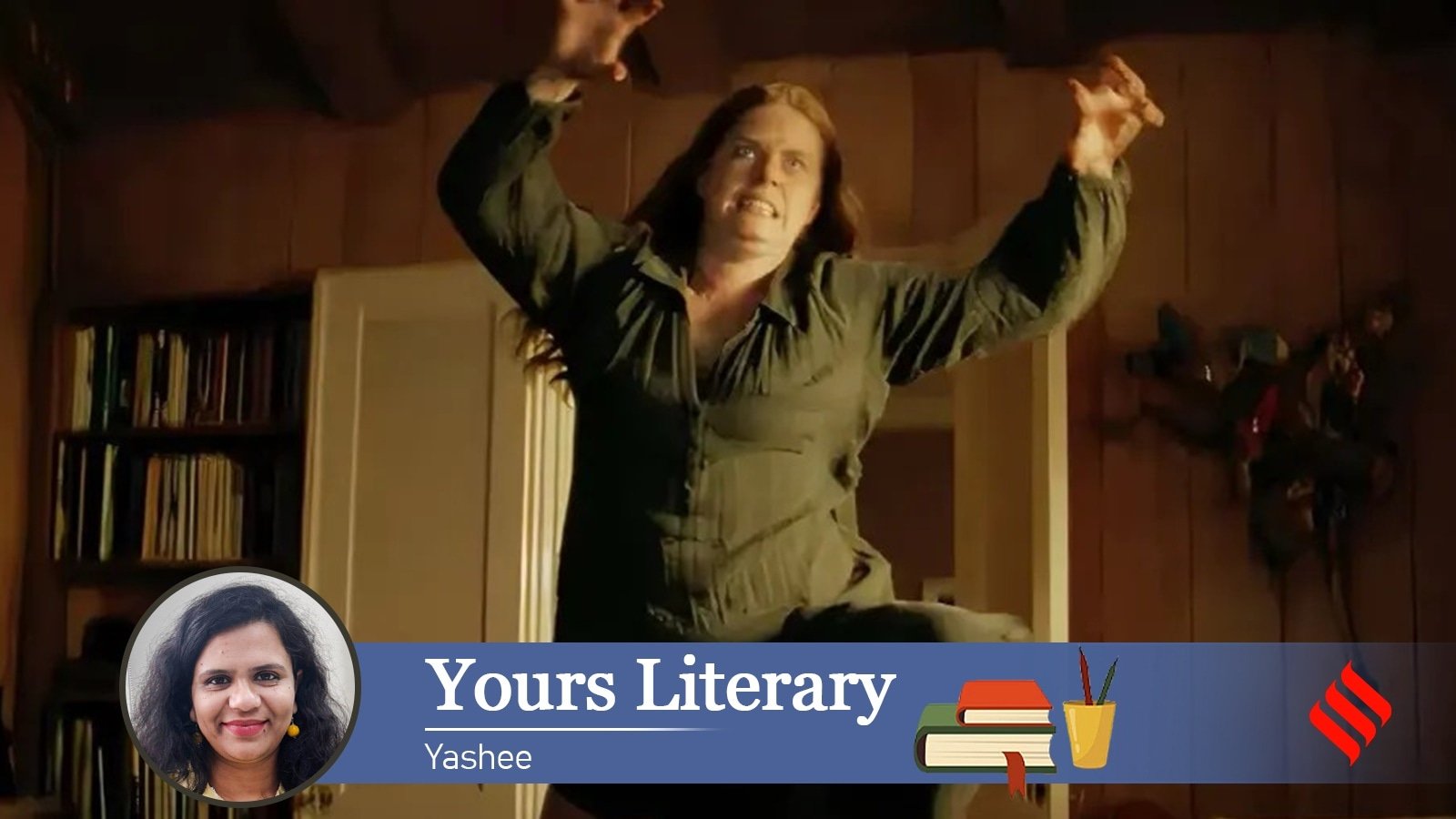Why does Twilight have a cult following? Not because the monsters are cool and hot. It’s because the story stops right before the real horror begins — Bella feeding, burping, changing, and sushing Renesmee all alone, while the red flag Edward Cullen flutters uselessly in the background. New motherhood is a horror so mystical, so sacred, that pop culture flinches from it. It is impossible to describe those first few years of creating and raising a human in anything as mundane as words. Which is why the American author Rachel Yoder resorts to magic.
This fortnight, we look at Yoder’s 2021 book Nightbitch, which a reader of this column emailed me to write about. The book was adapted into a movie in 2024.
In Nightbitch, an overwhelmed mom of a two-year-old gradually turns into a dog. By day, she is a small-town mom struggling with motherhood and the pause on her career. At night, she is a dog prowling the streets, hunting small animals, shitting on her annoying neighbour’s lawn.
The book is outrageous but not excessive. It successfully makes the point that the phenomenon of early motherhood is impossible to contain in the neat, airbrushed paradigms of womanhood modern culture offers us. No other human experience is quite as fantastical, as unbelievable-but-true, as becoming a mother.
A land under enchantment
Early motherhood is neither Narnia nor Valinor nor Mordor. It is a combination of all. It is a land you know nothing about unless you have been there, and even then, no two mothers have the same journey. The rules of the ‘normal’ world don’t apply. You are lonely, bone tired, and delirious from lack of sleep. You are pulsating with a fierce, explosive love. If this isn’t magic, what is?
Rachel Yoder’s fantasy novel does not need to create a new world. She just has to shine the light on the commonplace yet extraordinary magic unfolding unregarded in homes all around us.
Older fairy tales respected motherhood
Older fairy tales understood the power of mothering. It is no coincidence that Snow White, Sleeping Beauty, Rumpelstiltskin, Cinderella, Rapunzel, all touch upon the having of and caring for kids. It is the modern capitalist society that has bleached motherhood of its magic and reduced it to unpaid labour — unremarkable, uninteresting, lonely.
Story continues below this ad
In fact, the crowning achievement of motherhood today is supposed to be invisibilising it: bounce back, regain your figure, go scramble up that career ladder, have it all. Don’t complain, don’t expect help, don’t make it awkward.
Yoder’s book is a howl of rage against this. If you don’t respect a mother, she will snarl, she will bark, and may snap off your head and drink your blood. If society does not offer a woman roles that can contain the whole of her, she will invent new dimensions to exist.
A fable for modern age and rage
Yodel’s achievement lies in the balances she maintains, between a fantasy novel and a motherhood journal, between humour and heartrending despair. To mirror the duality the mother is experiencing, the novel’s tone alternates between that of traditional fables (‘once upon a time there was a sad mother’) and the peppy self help spiel of social media, which asks you to ‘take control of your happiness’ and to ‘cease the day’.
The mother and her son are unnamed throughout the book. She is an artist who has put her job on hold to bring up the kid, while her husband is always travelling for work. She is desperately lonely, but can’t bring herself to socialise with other moms, because she is superior to women who care only about “leggings and essential oils”. She has chosen her son over her work, but feels no glory in the choice, wondering if her self-worth ended the day her salary did.
Story continues below this ad
Motherhood is also shockingly physical, involving blood, milk, poop cleaning, nipple latching. The book is unsparing in capturing this — the new set of nipples the mom-dog has grown, the tail she has sprouted and wants to wag, the blood she relishes in her mouth.
If we must deconstruct the magic, the monster is a metaphor for the rage and resentment she carries within, and letting it loose is liberating.
The book is not flawless. The denouement of the novel feels rather forced, the husband’s character is inconsistent, and at times, the attempts to shock are transparent.
But Yoder deserves to be read for putting into powerful words that which is so often experienced and so little understood — that motherhood is a primal and elemental force, nourishing as well as devouring; that mothers deserve not halos but actual help; that having it all should not mean doing it all; and that when maidens from fairy tales grows up, they contain monsters within, which no spell can tame.
See you after 15 days,
Yours Literary,
Yashee
yashee.s@indianexpress.com
Story continues below this ad
P.S: If you love books, write to me with what work I should discuss next. If you are not a reader of novels, follow along, and maybe you will begin to delight in the wonder and wisdom, the practical value, and the sheer joy of fiction.



